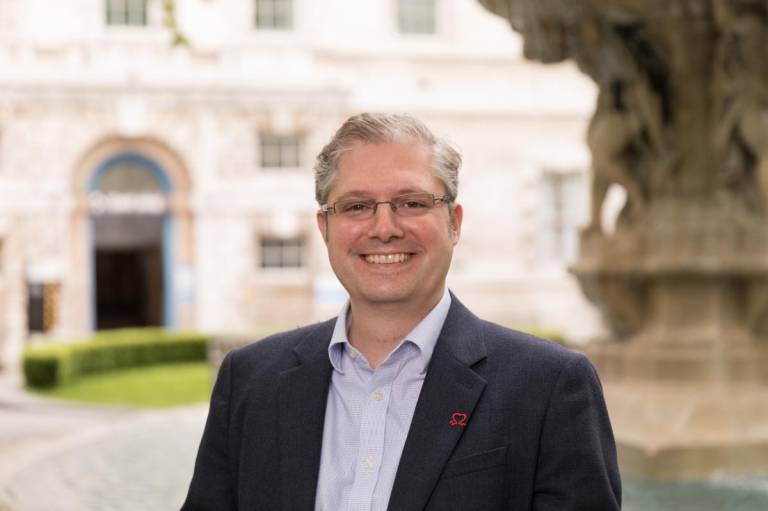Dr Thomas Treibel has won the ‘British Cardiovascular Society Michael Davies Early Career' award!
8 June 2022
Dr Thomas Treibel has won the ‘British Cardiovascular Society Michael Davies Early Career' award!

Congratulations to Dr Thomas Treibel for winning the ‘British Cardiovascular Society Michael Davies Early Career' award!
Here’s some information about the Dr Treibel, his research and the award he has won:
About the British Cardiovascular Society Michael Davies Early Career award
This award from the British Cardiovascular Society is to honour clinical and non-clinical researchers who have recently established themselves as independent investigators and who have made, and are making, an outstanding contribution to cardiovascular medicine. This award is in honour of Professor Michael Davies who was a British Heart Foundation Professor of Cardiac Pathology and Editor of British cardiovascular journal “Heart” from 1992–1999.
About Thomas:
Dr Treibel is an Academic Consultant Cardiologist at Barts Health and Associate Professor in cardiology at the Institute of Cardiovascular Sciences, University College London. A dedicated clinician with specialist interest in Valvular Heart Disease, Heart Failure and multimodality Imaging.
His clinical expertise is supported by sub-specialty training in advanced heart failure, valvular heart disease, and multimodality imaging with Accreditation in cardiovascular magnetic resonance, transthoracic and transoesophageal echocardiography.
Academically, his aim is to improve outcomes for patients with valvular heart disease. He has a PhD from University College London, more than 120 peer-reviewed publications, over £4 million in grant funding, and national and international prizes. He was recently awarded a British Heart Foundation Intermediate Clinical Fellowship to study outcomes of patients with aortic valve disease.
Thomas is an active member of the Institute of Cardiovascular Sciences; he is deputy chair of the Research and Academic Networking Group (RANG), supervises four PhD student and co-leads the UCL Clinical Cardiology Module for the MSc Cardiovascular Sciences.
About his research:
Aortic stenosis is caused by narrowing of one of the main heart valves. When the narrowing becomes severe, replacing the valve is the only treatment to prevent death. Even after we replace the valve, half of patients are left with permanent damage of the heart muscle and a quarter die within 3.5 years. We assume that the heart muscle damage causes abnormal electrical and pumping function of the heart, leading to death, but we do not know.
I want to change this by understanding why and how patients with aortic stenosis and heart muscle damage are dying and what we can do to prevent this.
In my BHF funded research, I use a heart scan (MRI) to detect the damage. After valve replacement, we follow patients with a paper clip sized monitor, which is injected underneath the skin. This monitor continuously checks the heartbeat and sends any abnormalities wirelessly to our hospital. We monitor patients for 3 years to see if the damage causes abnormal electrical and pumping function.
Once we know how and why, we can design studies to target patients with available medications and specialised treatments like pacemakers or defibrillators, to protect them at risk from dying due to the damaged heart.
Link to further details: https://iris.ucl.ac.uk/iris/browse/profile?upi=TATRE28
Twitter: @ThomasTreibel
Prof Michael Davies: https://heart.bmj.com/content/89/5/473
UCL ICS RANG: https://www.ucl.ac.uk/cardiovascular/about-institute/research-and-academic-networking-group-rang
 Close
Close

